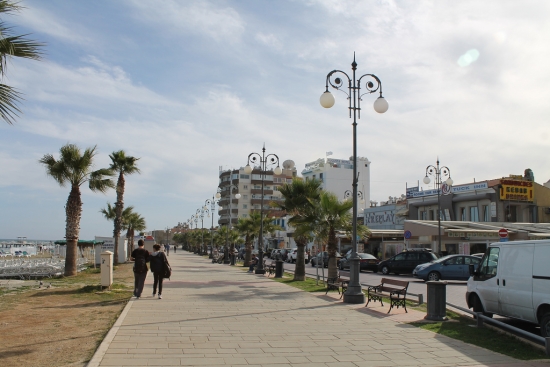With much of Europe enjoying a revival the real estate market, Cyprus continues to decline with January property sales plunging by almost a quarter, according to the island’s Department of Lands and Surveys.

With thousands of unsold properties, record levels of unemployment, lack of liquidity and fears over the state of the economy, transactions fell in every district across the Mediterranean island. The only areas to buck the trend were Larnaca and Nicosia.
January saw just 293 contracts for the sale of commercial and residential properties and plots of land deposited at Land Registry offices, a reduction of 22 per cent on the 373 contracts officially recorded in the same month last year. Of last month’s deals 71 per cent were deposited on behalf of domestic buyers, while 29 per cent — 85 transactions — were deposited by representatives of overseas buyers.
The latest figures show a fall of 82 per cent from the January high of 2008 when a total of 1,615 contracts were deposited. Despite the recession being all but over, Cypriot banks are becoming increasingly stringent on the granting new loans and are demanding substantial collateral, while charging relatively high interest rates.
The largest overall fall was recorded in the tourist location of Paphos, where the number of properties sold fell 48 per cent to 93, compared with the 178 sold in January, 2013. Sales in Famagusta were down 18 per cent, falling to 18 from last year’s 22, while sales in Limassol suffered a 15 per cent drop, down 14 from last year’s 94 recorded sales.
Of the two locations which squeezed an increase, 52 properties and parcels of land in Larnaca changed hands, compared with 35 sold last January, and representing a rise of 49 per cent. Nicosia, however, only managed an increase of 9 per cent with 50 sales, up just four on 2013.
Although domestic sales are still leading the market they were, according to one local agent, “very depressing, especially when you see what is happening elsewhere in Europe”. Overall property purchases by Cypriots in January fell from 303 to 208, down 31 per cent. Sales in Larnaca increased by 54 per cent and those in Nicosia remained steady at last year’s level. Towns with the biggest market collapse, at least to local buyers, were Famagusta, down 67 per cent, and Paphos, down 60 per cent.
The one bright spot was an increase in the number of land and property purchases by non-residents. Sales to the overseas market improved 18 per cent, increasing from last year’s 72 to 85, and giving some hope that a partial revival may be underway.
Limassol, traditionally attractive to tourists, lost ground with a 32 per cent drop while every other district recorded an increase. Sales in Nicosia were up 18 per cent, while those in Larnaca and Paphos increased by 36 and 6 per cent respectively. The one town back in favour appears to be Famagusta where there was 11 January property deals — an increase of 1,000 per cent.
Previous Post
Crossrail Factor fuels Demand for East London Property
No related posts found for this post.